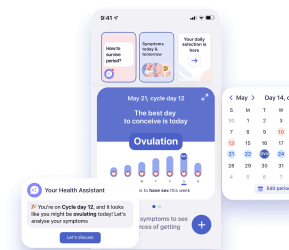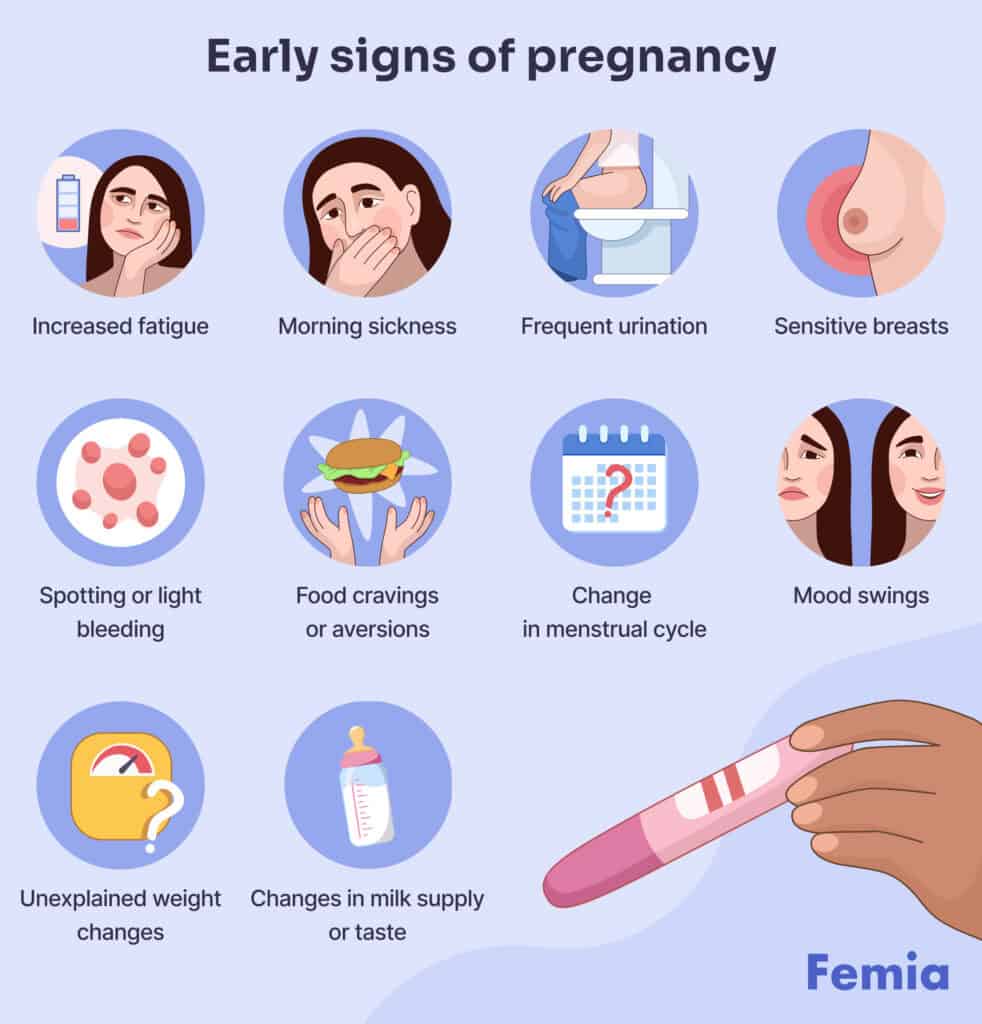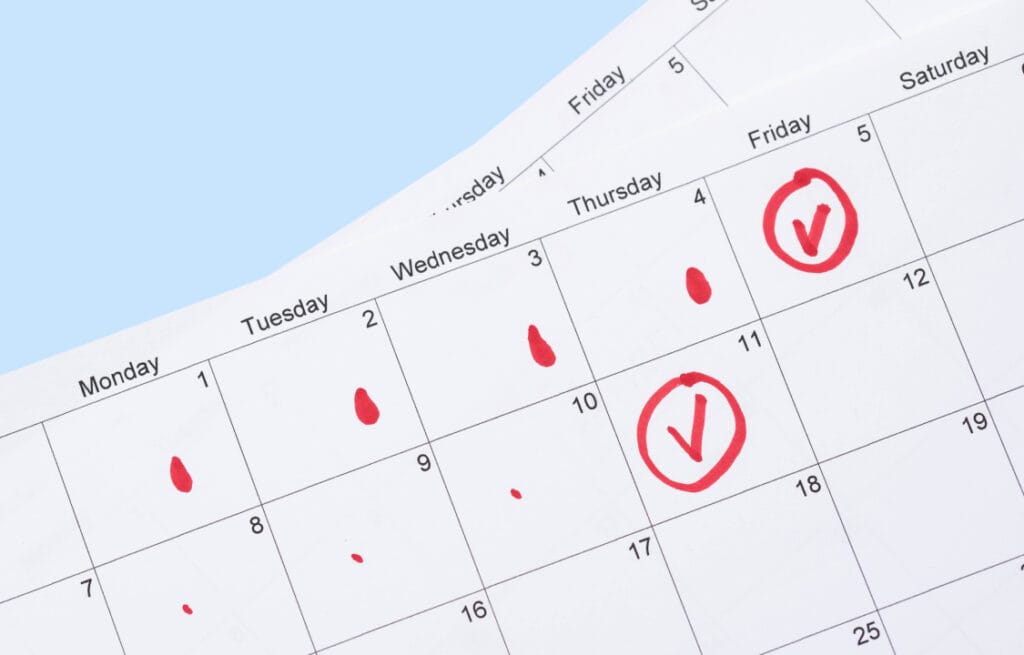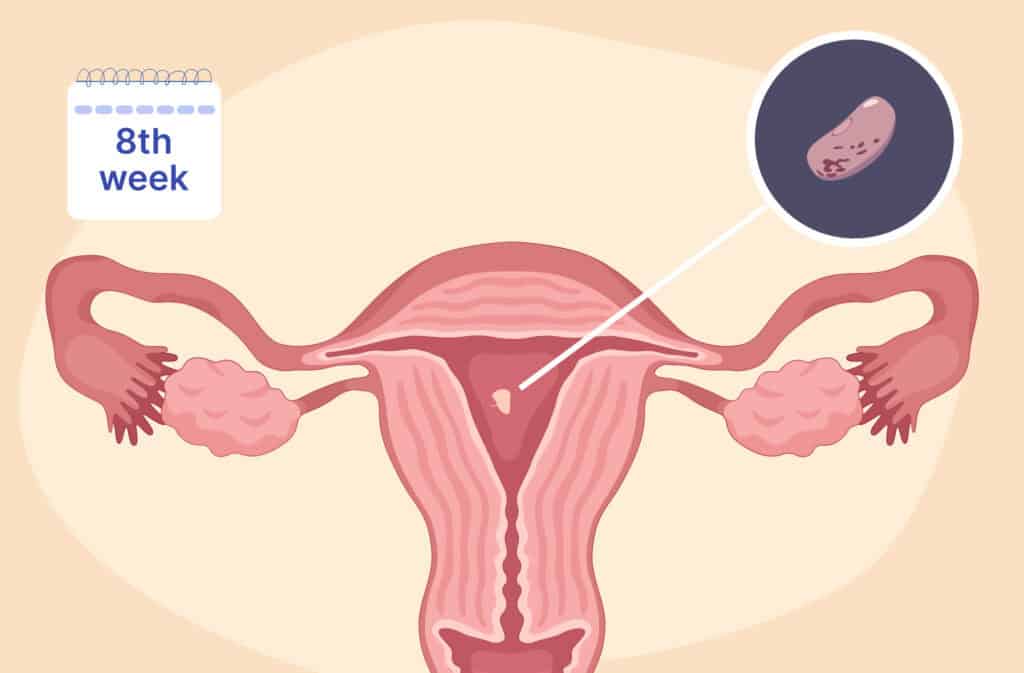Femia > Health Library > Your cycle > Health > Ten signs of pregnancy while breastfeeding
Ten signs of pregnancy while breastfeeding

- Updated Feb 24, 2025
- Published
CRAFTED BY HUMAN
Crafted by human At Femia, we provide accurate and up-to-date information at every stage of your journey, from trying to conceive, pregnancy and postnatal support. All content is created by a real person based on in-depth research and own professional experience. Femia ensures that you will receive expert advice, strict accuracy and a personalized approach from our authors/medical experts. Learn more about our editorial policy.
FACT CHECKED
Fact checked At Femia Health, we maintain the highest standards of editorial excellence in delivering content focused on helping you conceive, guiding you through pregnancy, and supporting you postpartum. Explore our content review principles to learn how we ensure the accuracy and quality of our health and lifestyle tips for every stage of your journey.

Created with Hector Chapa, MD, FACOG, Clinical associate professor, Obstetrics and Gynecology Texas A&M University, College of Medicine in Bryan-College Station, USA
Pregnancy while breastfeeding is possible, even if you haven’t had your period yet. Key signs to watch for include:
- Changes in milk supply or taste
- Increased fatigue beyond normal new-parent tiredness
- Morning sickness or nausea
- Breast sensitivity changes
- Unexplained weight fluctuations
If you suspect pregnancy, wait about a week before taking a test for accuracy.
It is popularly said that breastfeeding is a kind of natural contraception method. However, this is not always true. Although lactational amenorrhea (not menstruating while breastfeeding) does reduce the risk of conception, it can still occur, especially after the first six months postpartum.
Pregnancy can occur even while breastfeeding, and knowing the possible signs is crucial to your health as well as your unborn child’s. In this article, we will look at the ten signs of pregnancy while breastfeeding to help you be more aware and prepared.

Understanding pregnancy while breastfeeding
When a woman breastfeeds, her body produces a lot of prolactin—the hormone responsible for milk production. Prolactin, in turn, suppresses the hormones needed for ovulation, which often results in a lack of menstruation. As long as ovulation hormones are suppressed, it greatly reduces your risks of getting pregnant.
👉Find out more: Signs of ovulation after giving birth: What new moms need to know
Can you use breastfeeding as birth control?
Breastfeeding is indeed perceived as the most accurate method of natural contraception. If you breastfeed, the chances of pregnancy are reduced by 98%. However, there are nuances to the fact that need to be considered. It is not an ideal way of preventing pregnancy, and there are some factors that can end up causing an unexpected pregnancy while breastfeeding, even if you thought it wasn’t possible.
👉Find out more: Can you get pregnant while breastfeeding? Everything you need to know
There are several conditions under which breastfeeding can significantly reduce your fertility:
- You are only breastfeeding your baby, no formula;
- You breastfeed your baby at night as well;
- Your baby is less than 6 months old.
These strict conditions to using breastfeeding as contraception make it non-ideal for most women. And, even with all the rules, you have about a 2% chance of getting pregnant. Additionally, if you reduce the frequency of feedings, and the duration of the process itself, the risk of pregnancy can increase significantly.
However, it is worth remembering that the absence of periods does not always mean the absence of fertility. The ovulation process can occur without a full cycle, with around 33% of women experiencing their first ovulation in the first three months after having a baby. You still have a chance of getting pregnant while breastfeeding, so relying on breastfeeding alone for contraception is a method that doesn’t always work.
Ten signs of pregnancy while breastfeeding
Now that you know that pregnancy is possible while breastfeeding, let’s talk about how to identify early pregnancy. In normal cases, a missed period is the first definite sign of pregnancy a woman will experience. However, as discussed above, when breastfeeding, you may experience ovulation and get pregnant before your periods have even returned. So, how can you tell if you’re pregnant?
Breastfeeding and caring for a newborn in general can make you feel tired and strange. But, it should be cause for concern if you start feeling out of the ordinary, more exhausted than usual, or experience new pain while breastfeeding.
Therefore, it is important to recognize the very early signs during the first week of pregnancy while breastfeeding. This way, you can receive support from a healthcare provider as soon as possible. So, here are ten signs of pregnancy during breastfeeding:

1. Changes in milk supply or taste
There are quite a few factors to consider when a baby refuses milk. One of these is pregnancy, which can greatly affect the production and flavor of breast milk. The hormonal changes associated with a new pregnancy can reduce the amount of milk and change its composition, making it less appealing to the baby. If your baby suddenly starts to refuse the breast or behaves restlessly while feeding, it may be one of the first signs of pregnancy.
2. Increased fatigue
Nursing and breastfeeding are quite exhausting for the mother. At this time, they need the support of loved ones more than ever, because often the exhausting care of a newborn can be very harmful to the mother’s health.
Feeling tired and fatigued can be even worse if you are pregnant. Pregnancy requires a lot of energy, and your body has not yet had time to recover from childbirth.
3. Morning sickness
The most common symptom of pregnancy can catch up with you even while breastfeeding, and it can greatly affect a woman’s well-being. Hence, it makes her even more fatigued, which can also influence milk production.
4. Frequent urination
During pregnancy, the uterus starts to grow and put pressure on your bladder, and in addition, your body is holding more blood and fluid. Therefore, you visit the toilet more frequently (especially at night).
5. Sensitive breasts
Women may all feel differently when breastfeeding. And, even different pregnancies can affect a woman completely differently. However, if you suddenly have a change in breast sensitivity, your breasts become more sensitive and painful to touch, or you notice changes in their size and density, it could indicate a new pregnancy.
👉Find out more: 10 weird pregnancy symptoms you didn’t know existed
6. Unexplained weight changes
Some women may find that they suddenly gain or lose weight. Changes in your weight are most likely due to hormonal fluctuations during the early stages of pregnancy.
7. Mood swings
Pregnancy can cause sudden mood swings that manifest themselves as irritability, tearfulness, and sudden bursts of emotion. Hormones during pregnancy can “infuse” you with a storm of emotions, especially when you are breastfeeding.
8. Spotting or light bleeding
If you notice light,bloody discharge, it may be embryo implantation and not menstruation. This discharge is usually less heavy and has a pinkish or brownish color. This type of bleeding can be hard to distinguish from menstruation, especially if your cycle has not yet recovered properly.
9. Food cravings or aversions
Pregnancy can cause unexpected changes in your appetite. You may start experiencing irresistible cravings for certain foods or, conversely, start avoiding foods you used to love.
Nutrient needs increase during pregnancy, and your body may experience different foods in new ways. Moreover, breastfeeding requires a lot of nutrients, so cravings only grow as the need for nutrients does.
10. Change in menstrual cycle
During breastfeeding, menstruation may be irregular or non-existent, so any changes in your cycle are particularly noticeable. If you begin to notice that your periods are lighter, irregular, or more painful, it may indicate hormonal changes associated with the new pregnancy.

Risks and dangers of pregnancy while breastfeeding
You should understand that getting pregnant again while breastfeeding and recovering from recent childbirth can put a woman’s body under a lot of stress. Therefore, early pregnancy carries some additional risks:
Changes in hormonal balance
The hormonal changes that occur during pregnancy can affect breast milk and lead to a decrease in milk production. This can increase the mother’s tension and stress levels, especially if it causes the baby to reject milk.
Physical and emotional stress
Pregnancy and breastfeeding at the same time can be a tremendous physical and emotional strain. The birth of a new life and caring for a newborn is hard work that is very tiring and draining. Another pregnancy during this period can increase the mother’s stress, leading to a decrease in her well-being and ability to care for herself and her baby.
👉Find out more: How to spot the difference between single and twin pregnancy symptoms
How long it takes for the body to recover after childbirth
After the birth of a new baby, a woman’s body needs time to recover. Usually, the recovery period takes six to eight weeks, during which the uterus returns to its normal state and the hormonal balance begins to stabilize. However, the full, less visible recovery of the body takes much longer. It takes months to rebuild all of its systems, such as the immune system, and get them back to normal.
When a woman continues to breastfeed during pregnancy, she will need additional time to adapt to her changing body. During this time, it is especially important to monitor your body’s health. Furthermore, it is crucial to have regular medical check-ups to make sure everything is going well.
What to expect when breastfeeding while pregnant
Pregnancy can have a big impact on how you experience breastfeeding, including some risks and changes. For example, we have already mentioned that hormonal fluctuations can change the taste of breast milk, which can cause your baby to refuse milk. However, it doesn’t always happen, and some people adapt.
The biggest challenge will probably be increased breast sensitivity and general severefatigue. A lot of women experience painful breastfeeding sensations, and pregnancy symptoms while breastfeeding can make these sensations even more unpleasant.
When to take a pregnancy test
Many women wonder when to take a pregnancy test for the most accurate results. Usually, the best time is the first day of a missed period. The problem arises while breastfeeding, because the menstrual cycle can be irregular, and early signs of pregnancy while breastfeeding can be blurry.
So, when should you take a pregnancy test? There are a few things to look out for:
- Significant menstrual delay. This is the easiest sign that it’s time to take a pregnancy test. Yet, while breastfeeding, the absence of a period is not a direct sign of pregnancy. We recommend that you focus on other, more serious symptoms, such as nausea, frequent urination, etc.
- Symptoms last more than one week. If the above signs appear, we recommend waiting at least a week before taking a test. This is because the level of human chorionic gonadotropin (hCG) hormone, which is detected in the urine during pregnancy, may not yet be high enough to be accurately detected in the first few days after conception.
Early tests can be very misleading. That’s why it’s best to wait another week before taking a test for the most accurate results.
What should I do if I suspect pregnancy?
If you suspect pregnancy while breastfeeding, it is important to take steps to make sure the results are accurate.
- Be sure to follow the advice above before buying and taking a pregnancy test. Once confirmed, it is important to go to your healthcare professional and have an ultrasound done to confirm the pregnancy and determine the gestational age.
- During breastfeeding and pregnancy, nutritional income becomes especially important. These two states require the maximum from a woman’s body, so to tolerate it better, it is very important to eat a proper and varied diet. Don’t think of it as a restriction; focus instead on exactly what your body requires, and eat plenty of proteins, fats, and carbohydrates as well.
- Reconsider breastfeeding. Talk to a professional about whether it will be safe to continue breastfeeding during pregnancy. If you do want to continue, a professional can advise you on ways to make it possible. The main thing is to see the right specialist in time.
Questions from Femia community
Can breastfeeding affect the accuracy of a pregnancy test?
No, breastfeeding does not affect the accuracy of a pregnancy test. The tests work by determining the level ofhCG in the blood or urine, which is not changed by lactation. Breastfeeding does not produce hormones that could skew the test results, so you can trust its readings whether you are breastfeeding or not.
When can I get pregnant after giving birth while breastfeeding?
It is possible to get pregnant once ovulation resumes, which can be as soon as a few weeks after giving birth. It is possible even if you are breastfeeding, because lactation does not always prevent ovulation. In some women, ovulation can start before menstruation resumes, which makes conception possible even if you don't have a period. Therefore, if you are not planning another pregnancy, it is important to consider contraceptive methods.
What to do if you become pregnant while breastfeeding?
If you become pregnant while breastfeeding, it is important to see your healthcare professional to confirm the pregnancy and evaluate your condition. A specialist will help determine if it is safe to continue breastfeeding and what changes need to be made to your diet and lifestyle.
Additionally, your healthcare provider will make recommendations for prenatal care, which is important for the health of you and your unborn baby. It may include supplemental vitamins, nutrition, and regular medical checkups.
The bottom line
Breastfeeding is not a sure method of contraception, and it is quite possible to become pregnant again during this stage. Pregnancy while breastfeeding is noticeable through some unique symptoms and comes with certain risks, so you should always observe your body to catch any changes or deterioration in time. If you are pregnant while breastfeeding, make sure to get enough rest and prompt prenatal care. Don’t forget to visit your healthcare professionals regularly to monitor your condition and take action on time.
References
- “Postpartum contraception: the lactational amenorrhea method”. M. Vekemans. 1997. Available at: https://pubmed.ncbi.nlm.nih.gov/9678098/.
- “The resumption of ovulation and menstruation in a well-nourished population of women breastfeeding for an extended period of time.”Patricia R., James B., Marilyn B. 1991. Available at: https://www.sciencedirect.com/science/article/pii/S0015028216541806?ref=pdf_download&fr=RR-2&rr=8aedd89c8e1bc801.
- “Influence of Maternal Diet on Flavor Transfer to Amniotic Fluid and Breast Milk and Children’s Responses: A Systematic Review.”Spill M., Callahan E., Johns K. 2019. Available at: https://www.ncbi.nlm.nih.gov/books/NBK582184/.
- “Efficacy of a Breastfeeding Pain Self-Management Intervention: A Pilot Randomized Controlled Trial (RCT).”Ruth Lucas, Yiming Zhang, Stephen J. Walsh. 2020. Available at: https://www.ncbi.nlm.nih.gov/pmc/articles/PMC6400324/.
- “Breastfeeding During Pregnancy: A Systematic Review of the Literature.”Violeta Stalimerou , Maria Dagla , Victoria Vivilaki. 2023. Available at: https://www.ncbi.nlm.nih.gov/pmc/articles/PMC10674114/.

Fertile window or not? Understand your fertility levels better and learn all the tools and tricks to track your high-fertility days more accurately.

Curious if you can eat pineapple during pregnancy? Learn if it’s safe, the myths about labor induction, and how pineapple benefits you while pregnant.

Discover what’s happening at 8 weeks pregnant, from baby’s first movements to new symptoms. Get tips for a healthy pregnancy and self-care ideas.
